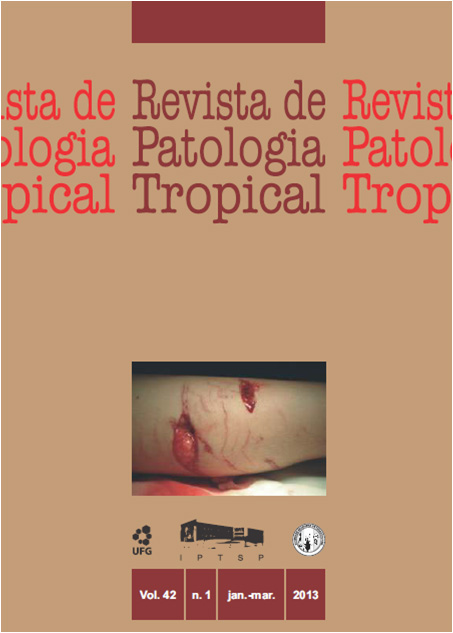Analysis of parasitological techniques in the monitoring of patients with Chagas disease and treated by heart transplantation
DOI:
https://doi.org/10.5216/rpt.v42i1.23594Keywords:
Chagas disease, Heart transplantation, Reactivation, Xenodiagnosis, Hemoculture, Buffy coat.Abstract
This study aimed to evaluate and make a comparison between hemoculture, xenodiagnosis and buffy coat examinations for diagnosis and monitoring of possible re-activation in chronic patients treated by heart transplantation. Seventy samples were analyzed and 15.7% (11/70) were positive:8.5% (6/70) in the hemocultures and 12.8% (9/70) in the xenodiagnosis. Four samples were positive in both techniques (5.7%). There were no positive results for the buffy coat examination. These findings support information about the superior sensitivity of xenodiagnosis in relation to hemoculture. Positive xenodiagnosis (day 15) and a myocarditis with nests of amastigotes, 15 days before the laboratory detection, observed in patient sample 20, signals the importance of early reading of indirect parasitological examinations as possible predictors of disease reactivation.Downloads
Downloads
How to Cite
Issue
Section
License
The manuscript submission must be accompanied by a letter signed by all authors stating the full name and email address, confirming that the material has not been published or is under consideration for publication elsewhere, and agreeing to transfer copyright in all media and formats for Journal of Tropical Pathology. The authors will not be paid for published articles. They are solely responsible for the content of those articles, even if the Editor holds the right to adjust them to the norms of the journal.
The reviewers will not be paid for the peer review process.

